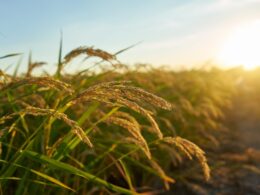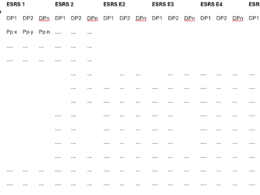Woolmark Company, the global authority on Merino wool offering certification on wool products, has announced the launch of Woolmark+. The initiative is aimed at uniting brands, woolgrowers, and the entire wool supply chain to promote sustainability and create a more environmentally friendly future for the wool industry. This new vision focuses on improving animal welfare, enhancing woolgrower livelihoods, accelerating low-impact production, and fostering circularity throughout the sector.
Woolmark+ outlines 13 key projects targeting increased wool productivity, reduced carbon emissions, and natural regeneration. These initiatives not only support the commercial success of woolgrowers but also align with brands’ growing commitment to reducing Scope 3 emissions and improving sustainability throughout the supply chain.
John Roberts, CEO of Woolmark said, “The Woolmark+ roadmap is designed to support woolgrowers, brands and suppliers to accelerate their transition to a nature-positive position. By effectively communicating both the inherent value of wool and the environmental co-benefits of wool production, we are aiming to enhance cost efficiency and create diversified revenue opportunities for partners right along the wool value chain. This approach not only strengthens the economic viability of wool production but also reinforces the positive environmental impact of wool-growing.”
Key initiatives within Woolmark+ include Carbon Insetting, a programme connecting woolgrowers with global brands to help them meet emissions targets. The initiative also focuses on methane reduction efforts, such as using feed additives like Asparagopsis (seaweed), which has shown a 50% reduction in methane emissions, and Agolin, which has demonstrated a 19% reduction.
Woolmark+ also includes a Nature Positive Specification component, which develops environmental measurements to help woolgrowers and brands make credible, data-backed sustainability claims. Investors can engage with leading organisations through the Nature Positive Impact Programme, aimed at reducing emissions, enhancing climate resilience, and promoting biodiversity. Additionally, the Woolmark Recycled sub-brand highlights wool as the most recycled fibre in the textile industry, contributing to circular fashion.
In India, Woolmark+ is targeting the wool industry with a two-pronged approach focusing on both export markets and domestic consumption. Ajay Pradhan, Senior Marketing & Business Development Manager at Woolmark India, said the initiative is designed to help Indian manufacturers and brands adapt to global sustainability regulations, which increasingly focus on reducing waste, emissions, and chemical usage.
“Both manufacturers and brands are witnessing how governments globally are stepping in to implement new sustainability measures,” Pradhan said. “Through Woolmark+, we aim to ensure tailored solutions are available at scale to meet the varying sustainability goals of brands and manufacturers.”
Woolmark+ aims to foster sustainable innovation across the wool supply chain in both the short and long term. Pradhan highlighted the initiative’s goal to support woolgrowers in managing natural resources for the benefit of their business, animals, and the environment. “We are aiming for deep collaboration with industry players to increase wool reuse and recycling, promote wool as the natural and circular fibre of choice, and steer wool manufacturing away from chemicals of concern. The success of this initiative depends on active industry participation,” he added.




















